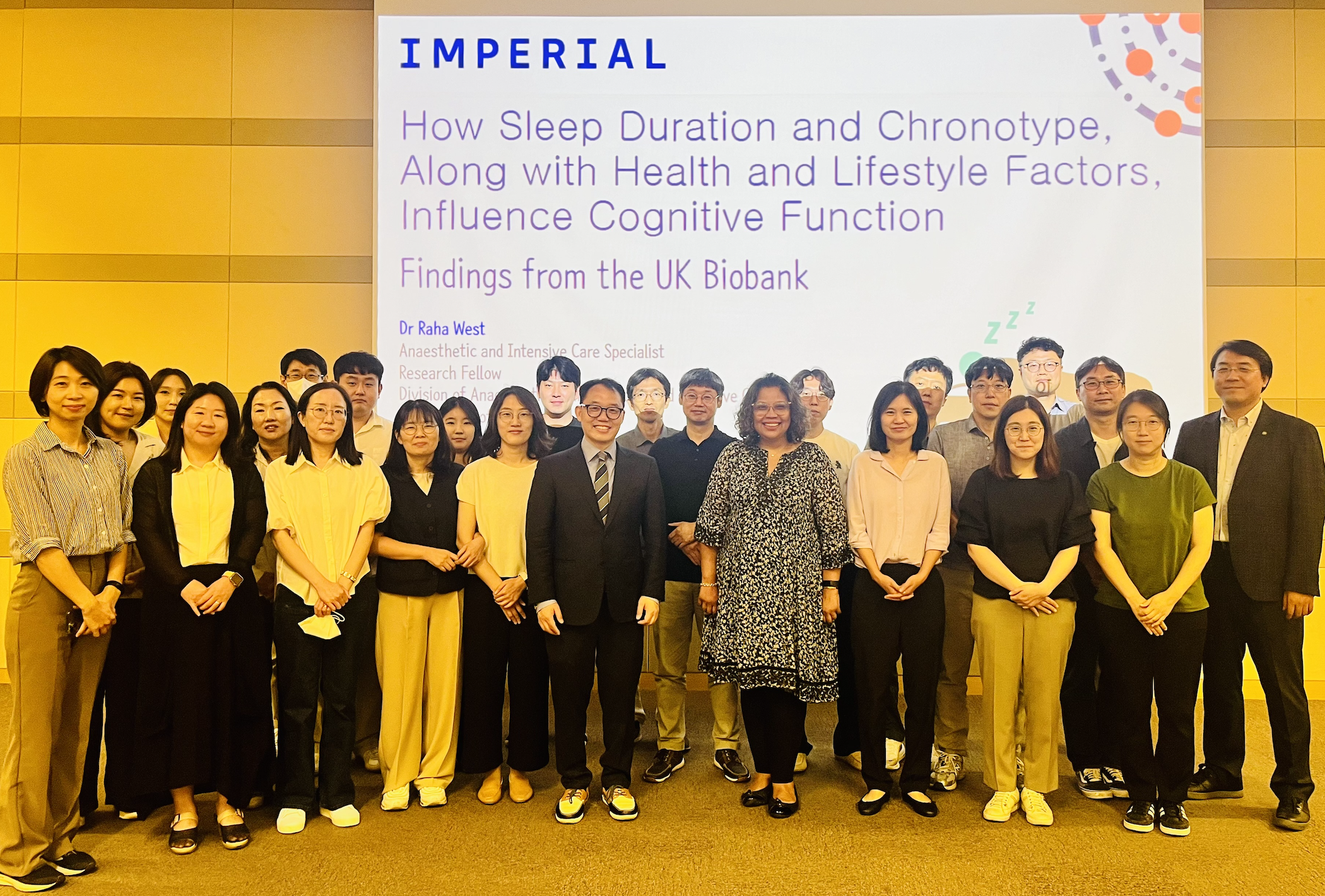
Are you a morning ‘lark’ or a night ‘owl and how is this linked to brain performance? To mark Sleeptember, Dr Raha West from the Department of Surgery and Cancer explores her recent research on over 26,000 people which found those who are naturally more active in the evening scored better on intelligence, reasoning and memory tests.
As we slip towards Sleeptember, a month dedicated to raising awareness about the importance of sleep, it’s the perfect time to reflect on the findings of our recent study published in the BMJ Public Health. Our analysis delves into how sleep duration, chronotype (whether you’re a morning person or an evening person), and various health and lifestyle factors influence cognitive performance in older adults.
The Motivation Behind Our Study
The importance of sleep in maintaining overall health, particularly brain health, has always intrigued me. The idea that our daily sleep patterns, including how long and when we sleep, could significantly impact our cognitive abilities led me to explore this further. Previous research has shown that poor sleep quality and duration are linked to various health issues. Still, the specific influence of chronotypes on cognition, especially in older adults, remains under-explored.
Methodology and Participant Selection
Our study utilised data from the UK Biobank, which includes a comprehensive set of health information from over half a million participants aged 40 and above. We focused on 26,820 individuals who completed detailed sleep and cognitive assessments. Participants were divided into two cohorts based on the cognitive tests they completed, ensuring a robust data analysis.
Key Findings: Sleep Duration and Cognitive Performance
We discovered that sleeping 7-9 hours per night is optimal for cognitive health. Both shorter and longer sleep durations were associated with poorer cognitive performance. This finding emphasise the importance of maintaining adequate sleep duration to support brain function.
Chronotype and Cognitive Function
Our study revealed that individuals with evening or intermediate chronotypes performed better on cognitive tests than those who identified as morning types. Interestingly, this trend contrasts with previous findings in younger populations where ‘morningness’ was often associated with better cognitive outcomes. This suggests that the relationship between chronotype and cognitive performance may evolve with age, possibly due to changes in circadian rhythms (the body’s natural 24-hour cycle that controls when you feel awake and when you feel sleep) and brain aging.
Surprising Elements and Broader Implications
One surprising aspect was the lack of a significant relationship between sleep quality and cognitive performance in our study, contrary to some previous research. This might indicate that specific aspects of insomnia, such as severity and chronicity, need more detailed consideration.
For the average person, the main takeaway is that understanding and working with your natural sleep tendencies can be beneficial, but the most critical factor is ensuring you get the right amount of quality sleep. This balance is essential for maintaining optimal brain health and cognitive function.
What’s Next?
Future research should focus on understanding the biological mechanisms behind these findings. Longitudinal studies are needed to explore how changes in sleep patterns over time affect cognitive health. Additionally, more diverse populations should be included to enhance the generalisability of our results.
Practical Advice
For those concerned about their sleep patterns, the key takeaway is to prioritise adequate and consistent sleep. Rather than trying to drastically change your chronotype, focus on getting 7-9 hours of good-quality sleep per night. Tailor your activities to suit your natural rhythms to optimise cognitive function throughout the day.
As we continue our research, we hope to develop more personalised recommendations that can help individuals maintain their cognitive health through better sleep practices.
Media coverage of the study
Raha’s study garnered widespread coverage in both the UK and the US, with Raha participating in numerous interviews, including those with BBC World Service News, Bloomberg, and the Evening Standard Science and Tech Daily podcast.
About the Author

Dr Raha West is an NIHR Doctoral Research Fellow at Imperial College London, Department of Surgery & Cancer, under the guidance of Professor Daqing Ma. With a background in Anaesthetics, Pain Medicine, and Intensive Care, Dr. West has led numerous research projects, including studies on the feasibility of perioperative intravenous lidocaine on colorectal cancer, various COVID-19 trials and an international collaboration with South Korea looking at sleep and cognitive function. She has received several awards for her research contributions, including the CEO Outstanding Research Contribution Award in 2020 (Buckinghamshire Healthcare Trust) and Winner of the Outstanding Principal Investigator Research Award in September 2020 (NIHR Thames Valley and South Midlands Clinical Research Network). Her professional journey includes significant roles such as Clinical Lead for the NIHR CRN Thames Valley and South Midlands Research Fellowship and Anaesthetic Research Lead at Buckinghamshire NHS Trust.